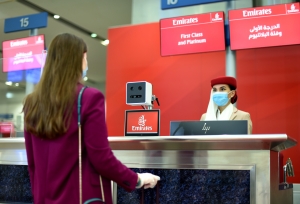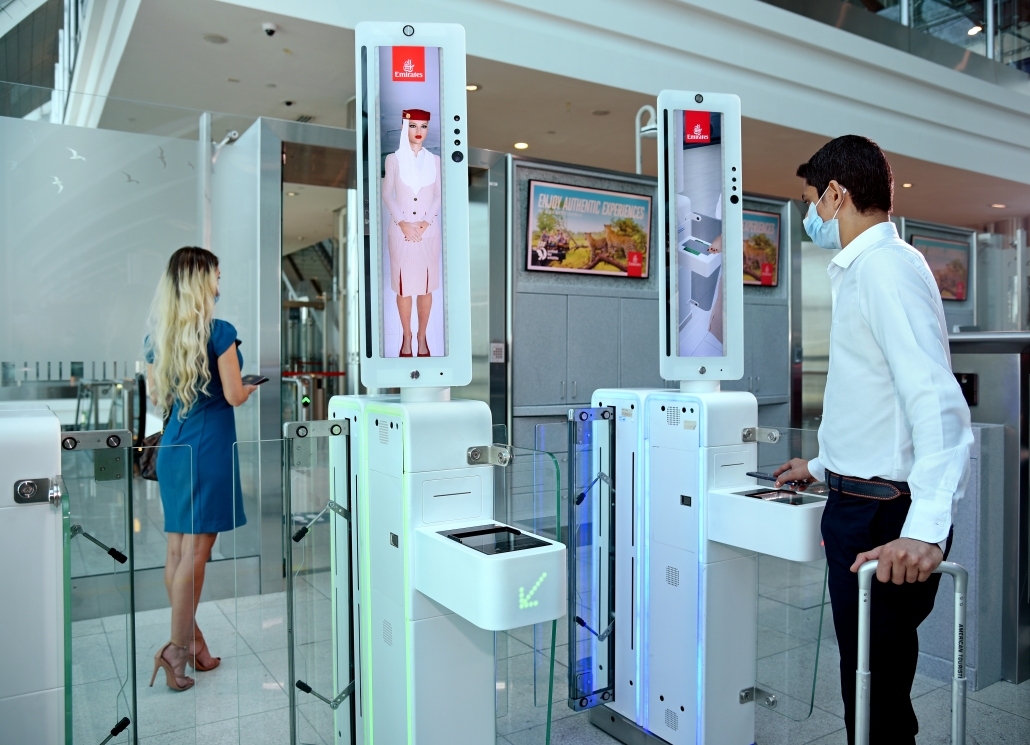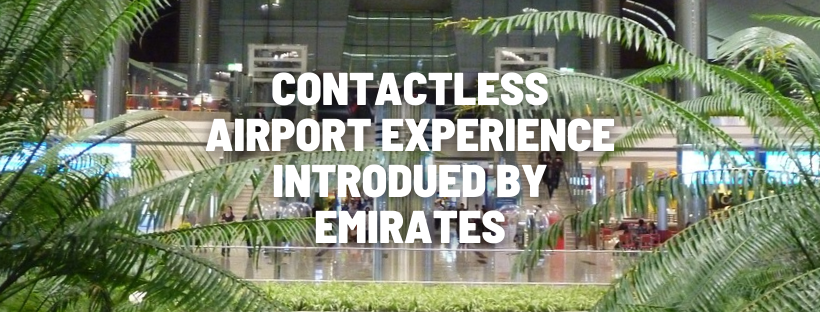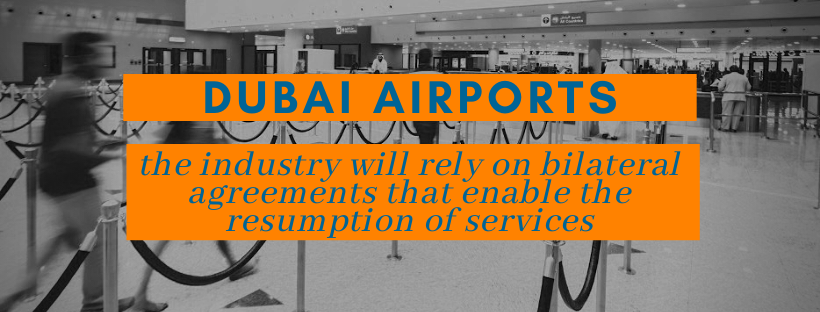Emirates launches integrated biometric path at Dubai International Airport
Emirates has launched an “integrated biometric path” at Dubai International Airport, a contactless airport experience, now open to Emirates passengers travelling from and through Dubai.
The integrated biometric path gives passengers a seamless travel journey from specific check-in to boarding gates, improving customer flow through the airport with fewer document checks and less queuing.

Emirates has launched an integrated biometric path at Dubai International airport. The contactless airport experience provides convenience and reduces human interaction, putting emphasis on health and safety.
Utilising the latest biometric technology – a mix of facial and iris recognition – Emirates passengers can now check in for their flight, complete immigration formalities, enter the Emirates Lounge, and board their flights, simply by strolling through the airport.
The various touchpoints in the biometric path allow for a hygienic contactless travel journey, reducing human interaction and putting emphasis on health and safety.
Adel Al Redha, Emirates’ Chief Operating Officer said,
We have always focused on providing a great customer experience at any touchpoint and now it is more vital than before to make use of technology and implement products, and introduce processes that focuses not only on fast tracking customers, but more importantly on health and safety during their travel journey. The state-of-the-art, contactless biometric path is the latest in a series of initiatives we have introduced to make sure that travelling on Emirates is a seamless journey and gives customers added peace of mind.
The biometric touchpoints are currently installed at select First, Business and Economy Class check-in desks in Terminal 3 at Dubai International Airport; immigration gates, including a “smart tunnel”; Emirates’ premium lounge entrance at concourse B; as well select boarding gates. Areas where biometric equipment is installed are clearly marked and additional units will be installed at each touchpoint in the future.
The Smart Tunnel, a project by the General Directorate of Residence and Foreigners Affairs in Dubai (GDRFA) in collaboration with Emirates, is a world-first for passport control, where passengers simply walk through a tunnel and are “cleared” by immigration authorities without human intervention or the need for a physical passport stamp.

Utilising a mix of facial and iris recognition, Emirates passengers can now check in for their flight, complete immigration formalities, enter the Emirates Lounge, and board their flights, simply by strolling through the airport.
Emirates is also the first airline outside America to receive approval for biometric boarding from the U.S. Customs Border Protection (CBP). Customers flying from Dubai to Emirates’ destinations in the U.S. will be able to choose facial recognition technology at the departure gates.
The biometric path is the latest in a host of initiatives by Emirates to provide a smart contactless journey. In the last month, the airline has introduced other services including self-check-in and bag drop kiosks at Dubai Airport “for a smoother airport experience”.
If you need to book flights on Emirates, contact your GTM Account Manager.









